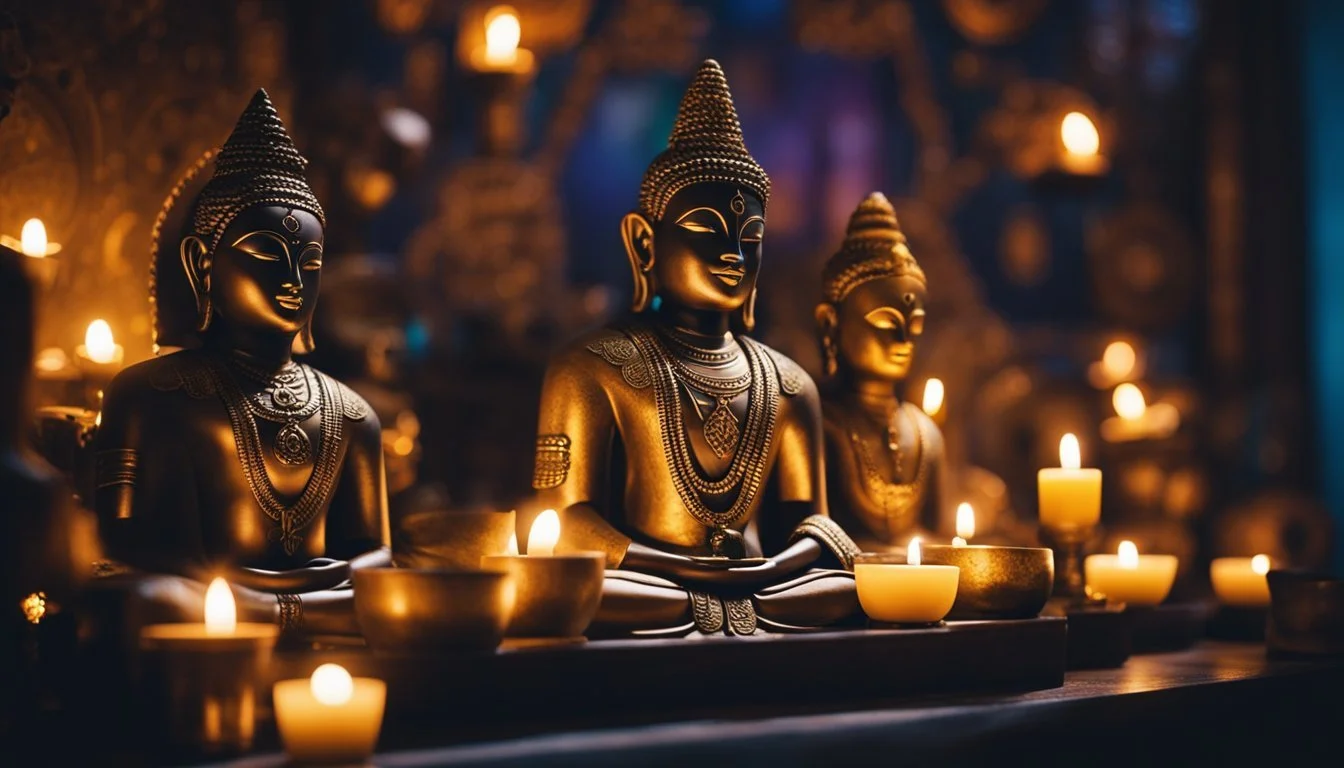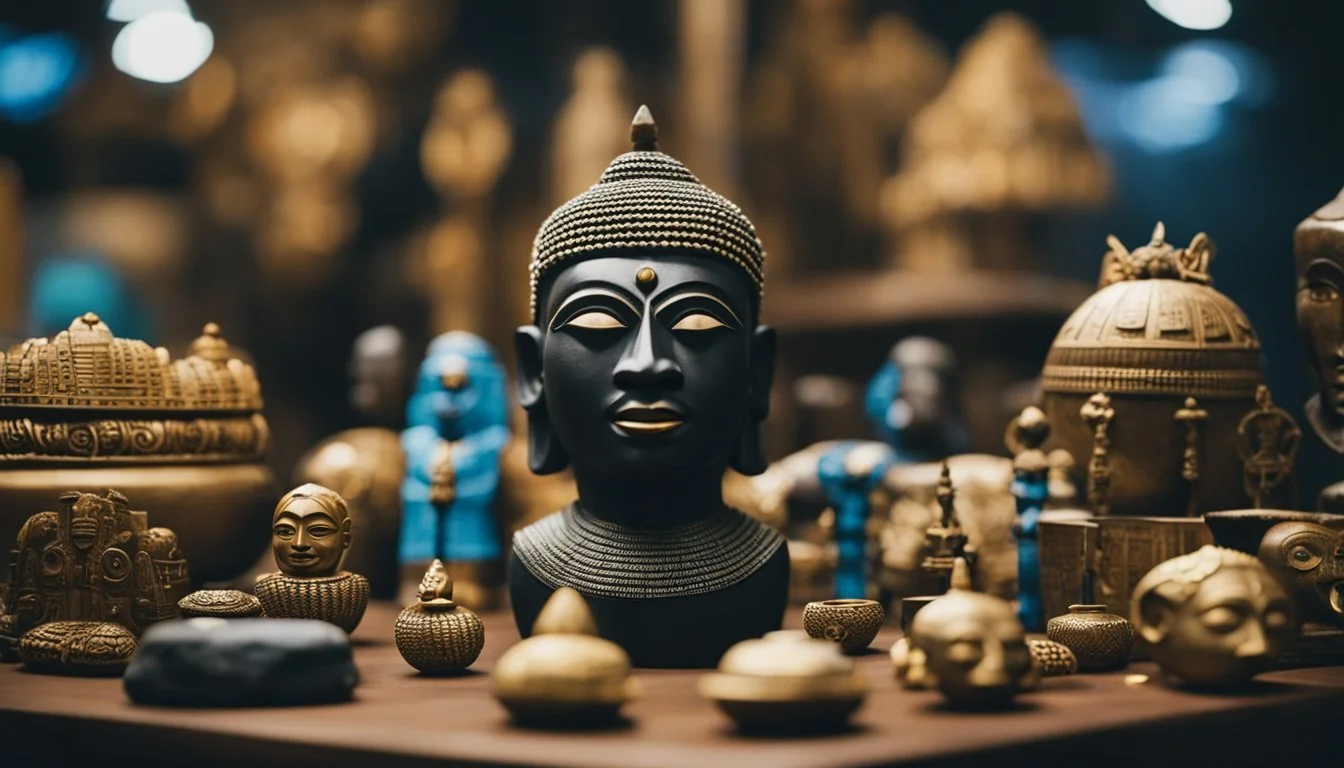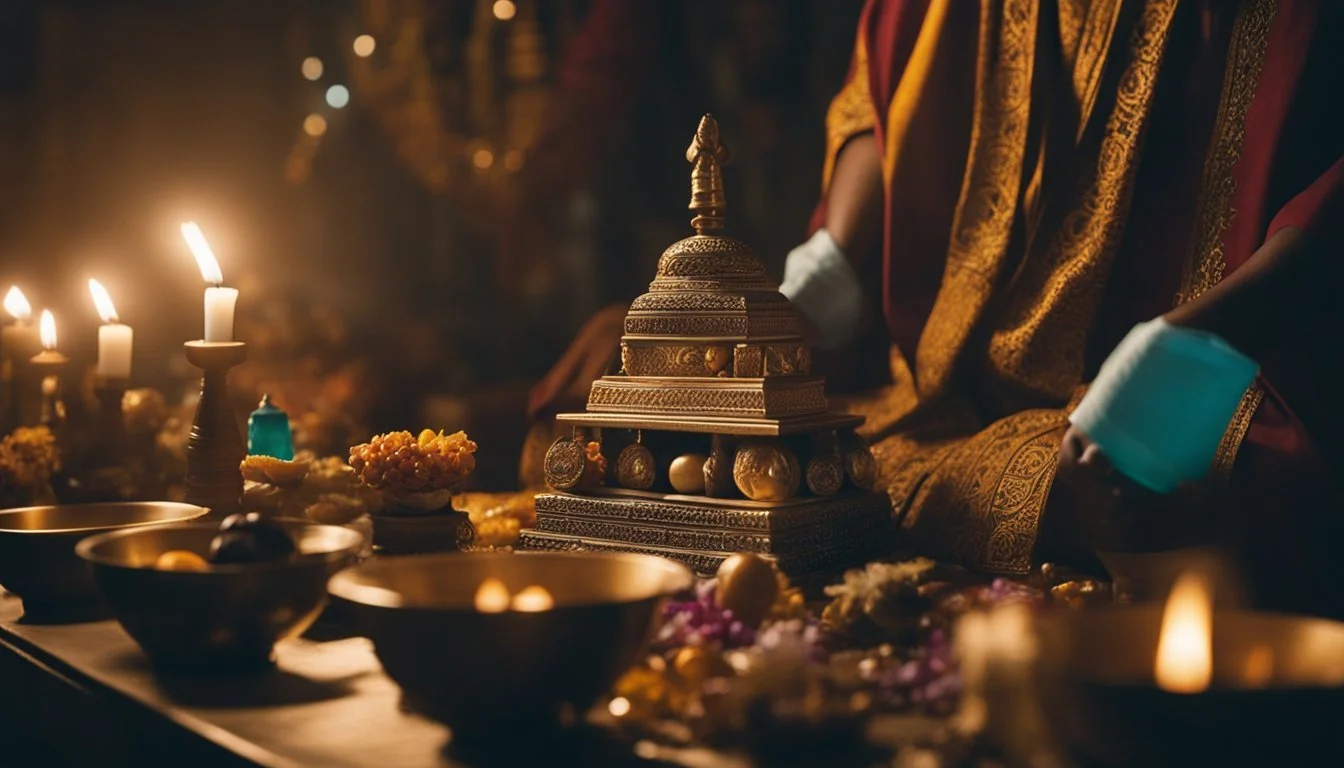5 True Crime Documentaries About Yoruba Religion
Uncovering Spiritual Mysteries
True crime documentaries often delve into various aspects of society, uncovering chilling real-life events that engage and educate viewers. Among these, the intersection of crime and culture provides a unique lens to explore the human psyche and societal norms.
The Yoruba religion, with its rich history and spiritual significance, offers a captivating backdrop for many true crime stories. These documentaries not only shed light on criminal activities but also provide insights into the practices and beliefs of the Yoruba people, offering a deeper understanding of this ancient tradition.
1) 'The Cult of Oshun' by Henry Louis Gates Jr. (2022)
Henry Louis Gates Jr., renowned for his work in African-American research, directed 'The Cult of Oshun.'
This documentary examines the Yoruba religion, specifically focusing on the worship of Oshun, the goddess of love and fertility.
Gates travels to Nigeria, delving into the rituals and significance of Oshun within Yoruba communities. The film provides insight into how Oshun's worship has influenced art, music, and culture both in Africa and the diaspora.
Interviews with practitioners and scholars highlight the continued relevance of Oshun worship. The film also explores how this spiritual tradition has adapted over time while retaining its core essence.
For more details, visit IMDb: The Cult of Oshun.
2) 'Mysteries of Yoruba Tradition' by Lisa Ling (2021)
Lisa Ling's documentary, "Mysteries of Yoruba Tradition," delves deep into the spiritual practices and beliefs of the Yoruba people.
Filmed over the course of several months, it explores the intricate rituals that form the backbone of Yoruba religion.
The documentary highlights various Orisa (deities) worshipped in Yoruba religion.
Ling interviews priests and practitioners who explain the significance of each ritual practice.
One of the prominent aspects covered is the concept of Ayanmo, or destiny.
Viewers get an inside look at how ceremonies are conducted to honor ancestors and seek guidance from the divine.
Additionally, Ling examines the role of traditional healers in Yoruba communities.
These healers utilize a blend of herbs, chants, and spiritual guidance to treat ailments, embodying the connection between physical and spiritual well-being.
"Mysteries of Yoruba Tradition" provides a compelling narrative, underscoring the resilience and adaptability of Yoruba religion in contemporary society.
For more information on "Mysteries of Yoruba Tradition," visit the IMDB page.
3) 'Oro: The Spirit of the Ancestors' by Rebecca Lee (2021)
'Oro: The Spirit of the Ancestors' is a documentary directed by Rebecca Lee. The film explores Yoruba religious traditions and their connections to ancestral worship. Lee is known for her work as a spiritual mentor and ancestor medium.
The documentary delves into rituals and ceremonies that invoke the spirits of ancestors. These practices are essential to Yoruba religious life, emphasizing the importance of lineage and heritage.
Viewers are taken on a journey through the rich cultural landscapes of Nigeria and the Republic of Benin. These regions have dense populations of Yoruba people, whose traditions are vividly depicted.
The film also covers the diaspora of Yoruba practices to the Americas. It highlights the influence of Yoruba religion in countries like Brazil, Cuba, and Haiti.
Rebecca Lee’s unique perspective combines her expertise in spiritual mentoring with an academic approach. This makes 'Oro: The Spirit of the Ancestors' a compelling watch for both scholars and laypeople.
More information about the film can be found on IMDB.
4) 'Yoruba Deities Revealed' by David Attenborough (2022)
In the documentary 'Yoruba Deities Revealed,' David Attenborough explores the pantheon of Yoruba gods, known as Orishas. This 2022 film delves into the rich tapestry of Yoruba spirituality and the significance of each deity in the lives of the followers.
Attenborough's narration provides insights into the roles and attributes of the Orishas, emphasizing their influence on Yoruba culture. The documentary features interviews with Yoruba priests and practitioners, adding depth to the understanding of these ancient beliefs.
The visual presentation captures traditional ceremonies and rituals dedicated to various Orishas, showcasing the vibrant and colorful aspects of Yoruba worship. The film not only highlights well-known deities but also introduces lesser-known ones, offering a comprehensive view of Yoruba religious practices.
For more information, visit the IMDB page.
5) 'Ancestral Voices: Esu and the Orishas' by Catherine Bell (2021)
'Ancestral Voices: Esu and the Orishas' by Catherine Bell explores the complex and often misunderstood figure of Esu in Yoruba religion. The documentary delves into Esu's role as a trickster and a guardian of order, challenging the common misconceptions that portray Esu as malevolent.
The film also highlights the significance of other Orishas, the deities in Yoruba belief, and their impact on cultural practices. Bell uses interviews with scholars, practitioners, and community leaders to provide a well-rounded perspective on these deities and their importance.
The year of release for this informative piece is 2021, adding a contemporary viewpoint to the historical and spiritual narratives.
Learn more: IMDB
Overview of Yoruba Religion
Yoruba religion is an ancient belief system originating in West Africa, known for its rich mythology, numerous deities, and cultural significance.
Origins and History
The Yoruba religion originated in the region historically known as Yorubaland, which now comprises parts of Nigeria, Benin, and Togo. Oral traditions have kept the religion alive, providing a deep historical context through myths and stories.
Yorubaland was a conglomerate of powerful city-states and kingdoms where the religion flourished. The practice and spread of Yoruba religion were significantly influenced by the transatlantic slave trade. As a result, elements of Yoruba belief integrated into other cultures, particularly in the Americas, leading to syncretic religions like Santería and Candomblé.
Core Beliefs and Practices
Yoruba religion is polytheistic, featuring a vast pantheon of orishas, or deities, each with specific attributes and responsibilities. Central to the belief system is Ifa divination, a complex process conducted by trained priests known as Babalawos.
Core beliefs include the concept of Ayanmo (destiny) and Olodumare, the supreme deity who is the source of all life and energy. Rituals, festivals, and daily practices revolve around seeking guidance from the orishas, maintaining harmony with the spiritual realm, and fulfilling one’s destiny.
Customary practices include offerings, prayers, and elaborate ceremonies. These are essential in connecting with the spiritual world, ensuring protection, prosperity, and spiritual balance.
Representation of Yoruba Religion in True Crime Documentaries
True crime documentaries that explore the Yoruba religion often highlight the intersection of spiritual beliefs and criminal investigations. These documentaries can shape public perception and understanding, while also propagating common misconceptions.
Impact on Perception and Understanding
Documentaries like "I am Yoruba: the History of our religion in Cuba" showcase the deep historical and cultural roots of Yoruba practices. By focusing on significant events and figures within the religion, they provide viewers with insight into Yoruban rituals and their importance.
Such representations can increase awareness and respect for Yoruba traditions. They emphasize the religion’s role in community bonding and its resilience against colonial oppression. Visual storytelling allows audiences to connect emotionally, fostering a broader appreciation for Yoruba spiritual practices.
Common Misconceptions
Despite their informative potential, true crime documentaries often sensationalize aspects of the Yoruba religion. This can lead to a skewed understanding, where rituals are misinterpreted as inherently linked to criminal activity. Such portrayals may reinforce stereotypes and ignore the profound cultural heritage of Yoruba practices.
For instance, elements like animal sacrifices or ancestral worship might be depicted without appropriate context, leading to misunderstanding. By focusing narrowly on crime-related narratives, these documentaries might overshadow the religion’s positive contributions and its role in cultural identity.
Cultural Significance of Yoruba Religion
The Yoruba religion holds a profound place in world cultures, influencing modern pop culture and spreading globally with various adaptations. This section explores these aspects in detail.
Influence on Modern Pop Culture
The Yoruba religion has deeply impacted modern pop culture, especially through music, film, and art. Notable figures like Beyoncé and her album Lemonade draw heavily on Yoruba symbolism and deities. Films and series often include Yoruba lore, highlighting its widespread appeal.
Literature also benefits, with authors incorporating Yoruba beliefs into narratives, adding depth to their characters and plots. Fashion designers often use Yoruba motifs, merging traditional aesthetics with contemporary styles, showing the religion’s enduring influence.
Global Spread and Adaptations
Yoruba religion has spread beyond Nigeria, permeating various parts of the world through the African diaspora. In the Americas, particularly in Cuba and Brazil, the religion has morphed into systems like Santería and Candomblé.
These adaptations retain core elements such as veneration of Orishas while blending with local customs and beliefs. Festivals, rituals, and spiritual practices in these regions echo their Yoruba origins, showcasing the adaptability and resilience of this rich tradition.








